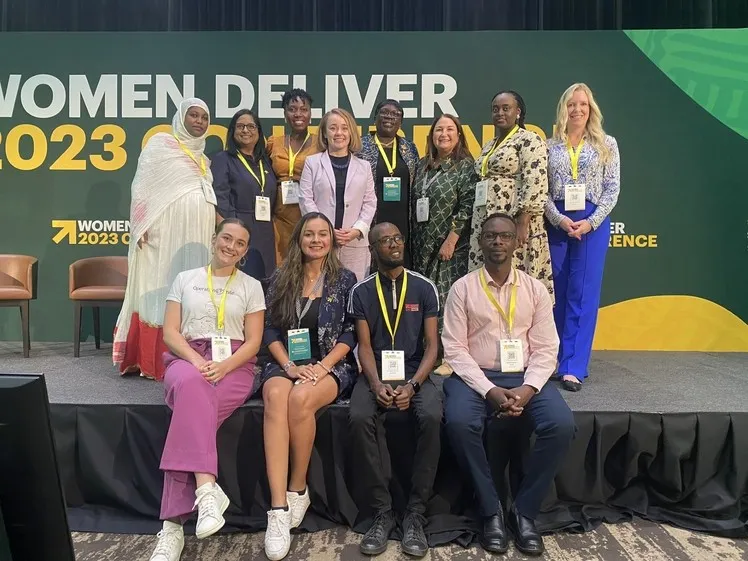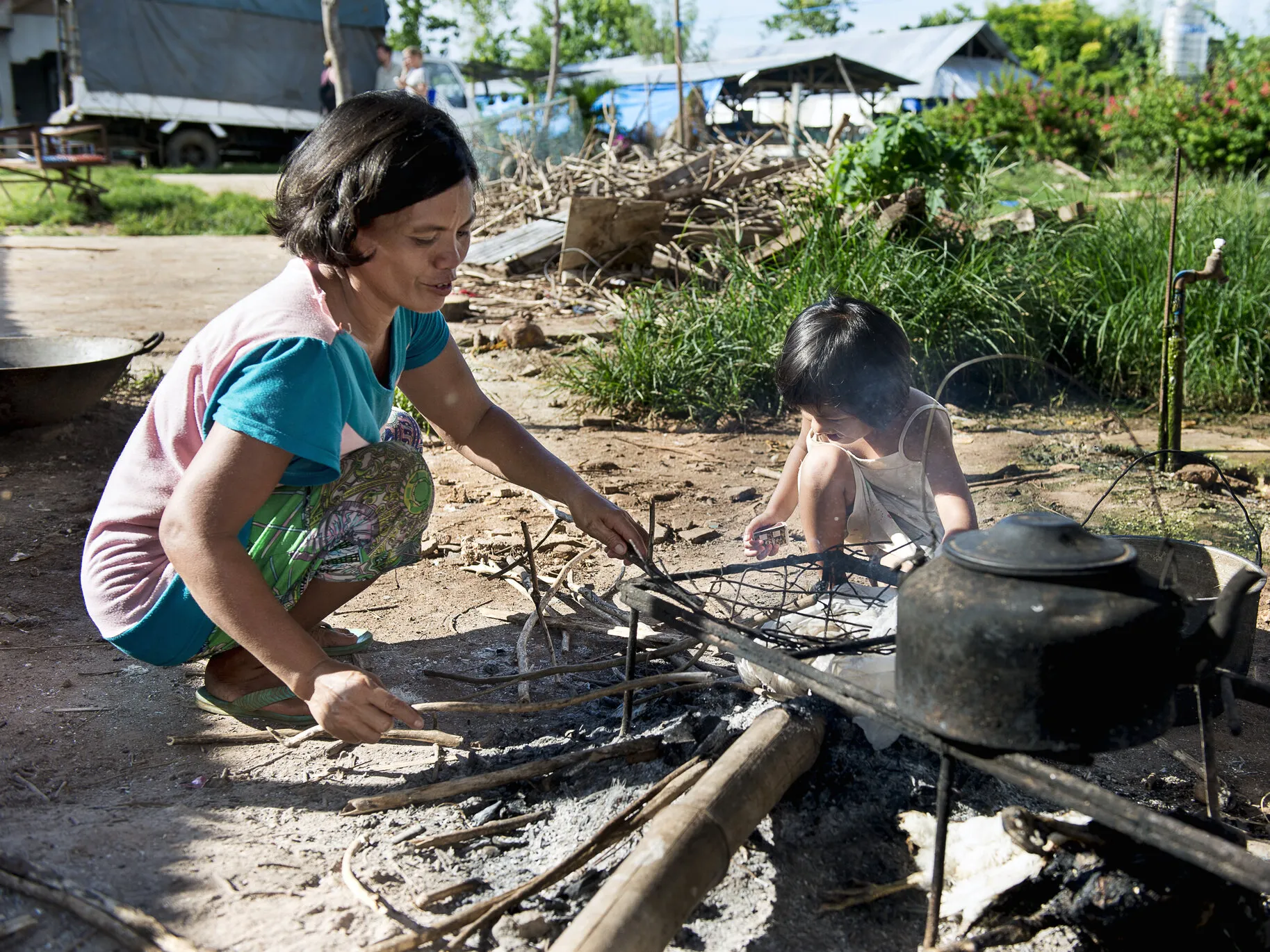Thought Leadership
Driven to Lead: Q&A with Abhishek Sengupta

First beginning his journey as a translator during medical programs, Abhishek Sengupta has continuously climbed the ranks within Operation Smile, holding many roles including program coordinator, program manager and regional program manager.
Today, he uses his knowledge and expertise of the organization to execute the role of executive director for Operation Smile India and the regional director in India, Russia and Italy.
“I grew up in a very small town where, since you were a kid, you were told that you have to either be a doctor or an engineer or a lawyer,” Abhishek said. “What Operation Smile exposed me to is that you can help people, and that can be a career.”
Pausing all medical programs in India was an incredibly difficult decision, especially after having just wrapped a successful program in Durgapur, but Abhishek knew that he needed to do everything in his power to protect his team, his patients and his country.
“For us, the biggest point of discussion that we had at that point of time was, one, patient safety and, second, volunteer safety,” he said. “That is what we championed in Operation Smile, and that is something that we would never compromise.”
We recently connected with Abhishek to hear more about his journey with Operation Smile and how his team in India strives to overcome COVID-19 challenges in the communities where they work.

Q: When did your involvement with Operation Smile begin?
A: “I actually started with Operation Smile as a student volunteer way back in 2005. That’s when I was getting my bachelor’s degree in English literature. Operation Smile had been working in India for just one year before that. They were doing a [program], looking for translators because, as you know, on a [program], the international volunteers need translators to communicate with local staff as well as patients. We took a van because our Operation Smile team that had sent a van for all the translators, and there were around 25 of us. There were like more than thousand people there. We got out and then we realized these are our patients. That day, we screened more than 600 patients. We went at 7 a.m. and came back to our dorm rooms at around 10 at night. We were exhausted, but we loved it.
“I think that’s when it clicked. Since then, I volunteered for a few more [programs]. We were doing [programs] in Bolpur, we’re doing [programs] in Deesa. Whenever they would come back to Bolpur for a [program], I’d help with patient recruitment, I’d help with some of the logistics with the hotel, lunch, dinner, as well as some of the hospital relationships. I would handle all that. That’s how it started. Believe it or not, the reason I was getting a bachelor’s in English literature was because I wanted to be a journalist. But then Operation Smile happened. Since then, I’ve been working in the development sector. After my graduation, I was offered a job as a program coordinator in India, which I readily took. I love doing what I do. It’s been an amazing journey.”
Q: What was it specifically that drew you in to working with Operation Smile India?
A: “I think what really inspired me was the idea of helping people. I grew up in a very small town where, since you were a kid, you were told that you have to either be a doctor or an engineer or a lawyer. When I decided to be a journalist, that was actually going off the track. What Operation Smile exposed me to is that you can help people, and that can be a career. This was something that I didn’t know. That was inspirational. In my job right when I was a program coordinator, I used to travel to rural India, I used to travel to small villages, meet patients, meet their families. At the same time, the next day, I would be sitting in an office in Bombay and meeting a corporate donor.
“That’s the interesting part, you meet policymakers, you meet health ministers, you meet health secretaries. The entire spectrum of people and the job is very interesting, it’s very dynamic. Every day is different. I’ve done over 100 [programs] in my life, and I still learn from each and every [program] because it’s not the same. I think one is the element of dynamism with the job. The second, you get all that while you’re making a difference in someone’s life. I think you really don’t need anything more than that to choose, I think it was an obvious choice.”

Q: What shocked you the most about the need for cleft surgery in India?
A: “I think when I started with Operation Smile, we were pretty much the only charity in India doing providing free surgery to children with cleft lip and palate. I had never seen a child with a cleft in my life. Even today, when I walk on the streets, I don’t see a child with a cleft lip and palate. Now imagine, while this is the reality, you end up on a [program] or you come to an Operation Smile center and you see hundreds, sometimes thousands of kids with cleft lip and palate. What that means is that there is something wrong. Why do we not see these kids in regular life?
“I started to engage with patients and patients’ families, hear their stories. Once you hear these stories, you just understand. How these kids are shunned away, and then you hear stories about the taboo and the superstitions that are associated with cleft. Something needs to be done about it. I think that’s what’s very critical, and that’s what I think people like us want to do and we have dedicated ourselves to doing and same with Operation Smile, I think that is what we champion, and that is what we want to continue doing.”

Q: Although we’ve had to postpone many surgical programs due to COVID-19, could you speak a little bit about what your team has done to provide food and relief items to families and migrant workers in India?
A: “We are very proud of what we have done. Of course, we believe that it is our responsibility to stand beside communities even in times of hardship, especially in times of hardship. Once we shut down our programs, we realized that this is going to stay and our teams were there and we wanted to help people. One way was to collaborate with hospitals and provide them with PPE, get our volunteers to help supporting as front-line workers in COVID wards and all of that, but then we realized that there were already people doing that. Plus, at that point of time, there was a huge shortage of PPE, so even for us to buy, it was difficult.
“Then we realized that because of the lockdown, there was another challenge. India has more than 4.5 million migrant workers. These are people who come from small villages to smaller towns or bigger cities in search of jobs. They would work at restaurants, pubs, bars, factories, small businesses. Most of them are daily wage earners. Depending on the number of hours they worked a day, they would get paid at the end of the day. That’s how they sustain. What happens is these factories, these restaurants, these businesses where they work, that’s where they stay. At night, they would sleep at the restaurant once it’s closed down. Because of the lockdown, suddenly all these businesses were shut. Suddenly, none of these people were being paid. They lost their jobs overnight. Most of them also didn’t have a place to stay because they were still living in the place where they work, or even if they were paying rent in a big city, once their daily income is gone, they were not able to pay that rent. There were no trains to go back home. There were no buses. You would see migrant workers walk for seven days, 12 days, 14 days on the highways trying to go back home because there were no transport.
“The other problem that happened is because these are people who pretty much live on a day-to-day basis, they don’t have any savings. Once they lost their jobs, there were a huge number of people who were living hungry. They didn’t have money to have two meals a day, leave aside three meals a day. We saw this as a problem, and we decided that that is a space we want to work in.
“We picked up two cities where we run centers. We started giving out food supplies. Overall, in about four weeks, we were able to support about 2,500 families, providing them food supplies. In each packet, there would be rice, potatoes, lentils or cooking oil, enough for about 20 days for each family. Then, of course, we also gave some hygiene kits, which is masks, sanitizers, soaps, buckets and mugs, because we felt that is important in these times. We hope that, socially, as we accept this as a new reality, I think people’s health-seeking behaviors are also influenced. Those are some challenges that, as a country, we can overcome.”








